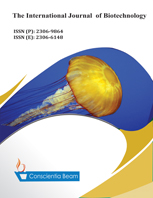Comparative Assessment of the Anti-Microbial Properties of Artocarpus altilis, and Syzygium cumini Leaves against Staphylococcus aureus and Escherichia coli
DOI:
https://doi.org/10.18488/journal.57.2021.101.15.22Abstract
A comparative assessment of the antimicrobial activity of two well-known and tropically distributed plants was conducted. Scientists and other researchers have been continuously investigating plants distributed all across the globe for medicinal properties so as to replace the chemically developed cures and treatment that are being used today. However, these plants and their extracts have not been developed for use in the medical field since adequate knowledge of the chemical makeup of these plants as well as clinical trials is still lacking. This study aimed to seek out the most antimicrobially active of the plants for testing and eventual use in medicine. The plant Artocarpus altilis and Syzygium cumini were investigated against a gram positive and a gram negative bacterium: Staphylococcus aureus and Escherichia coli respectively. Selective solvent extraction was used to extract the active compounds present in leaves. The solvents used were hexane, methanol and ethanol. The disc diffusion method was used to test antimicrobial activity of the plant extracts. The plant extracts were compared against a control and a reference, which were the solvents and Ampicillin respectively. Methanol and ethanol extracts of both plants showed zone of inhibition against the investigated microorganisms. However, the hexane extracts were unable to produce results. The results of this study noted that the ethanol extracts were more effective than the methanol extracts. According to this study, the most antimicrobially active plant is Syzygium cumini and the most inhibited bacteria is the gram positive bacteria: Staphylococcus aureus.

